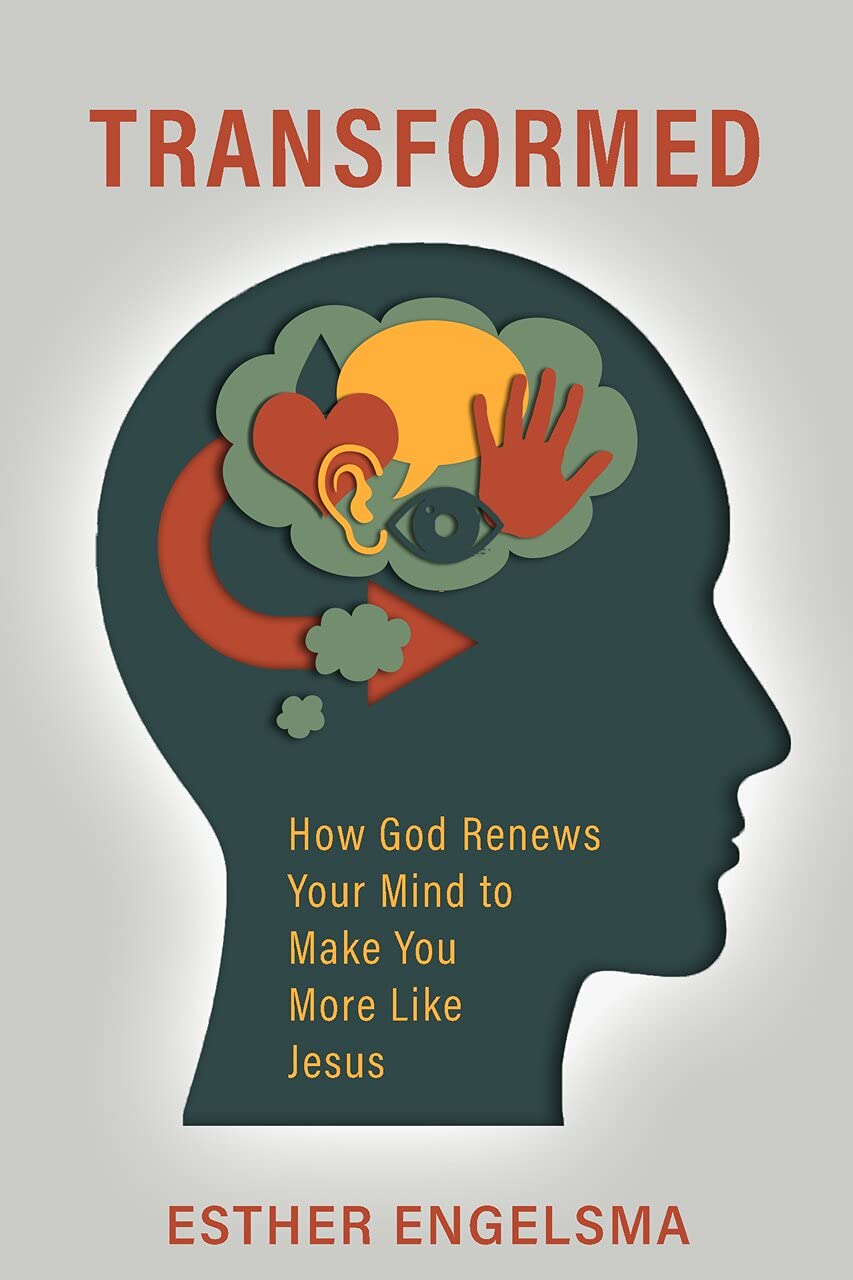
Esther Engelsma
Reviewed by: Elisabeth Bloechl
Transformed: How God Renews Your Mind to Make You More Like Jesus, by Esther Engelsma. Reformation Heritage, 2021. Paperback, 160 pages, $9.00. Reviewed by OP member Elisabeth Bloechl.
In her short book, Transformed: How God Renews Your Mind to Make You More Like Jesus, Esther Engelsma gives us what many Christians desire. She provides a practical guide for how to be transformed into Christ’s image by renewing our minds in God’s Word. Though practical, it is no self-help book. Foundational to Transformed is an acknowledgment of our reliance on the One ultimately able to renew and transform us (7, 68, 78). That said, her emphasis on God’s work does not mean she ignores our responsibility. Engelsma ably walks the fine line of our utter dependence on God and our obligation to faithfully obey. “God holds all the power, but He still commands us to obey” (10). God transforms us through faithful obedience (10–11). She dedicates the remainder of the book to explaining what this faithful obedience looks like in the renewal of our minds.
In chapter one, Engelsma explains that the mind is an interconnected web of what we say and do, feel and desire, look at and listen to, and think. She dedicates a chapter to each of these facets of our mind, explaining it further and giving us tips for how to conform that area to God’s Word. In each chapter, she makes us more aware of the ripple effects one facet of our mind has on all the others. For example: “When our thinking changes, what we say and do changes. And when our words and actions change. God slowly but surely transforms our feelings and desires” (48).
The heart of each chapter’s application is to spend more time in God’s Word, prayer, and wholesome activities and less time doing, looking at, listening to, feeling or desiring that which is contrary to God’s Word. For God chooses to transform us through the Holy Spirit’s working in and through God’s Word. As Engelsma writes: “When we replace sinful thoughts by reciting verses, preaching truth to ourselves, and reminding ourselves that we do believe and what we believe, we end up in a different place. What we say, do, think, feel, and desire begins to change” (37). She indicates that the fruit of such active pursuit of a renewed mind is Christlikeness.
Engelsma’s book is both encouraging and challenging. “Every decision we make, big or small, is a choice between gratifying the flesh or walking by the Spirit” (74). Sentences like this challenge the reader to strive for holiness (1 Peter 1:15–16), which means conforming our every thought, word, emotion, and source of input to God’s Word. Take out Engelsma’s firm foundation in Christ’s work applied and the Holy Spirit’s sanctification in us, and we could easily slip into legalism or despair upon reading her words (6–8). However, I believe it was her intent not to present a manual for pleasing God, but practical tips for how to do what God calls us to do: conform our minds to his Word that we may be transformed. My only critique is that Engelsma lacked a clear explanation that we obey God out of gratitude for what he has done in and for us. If the reader has a firm understanding of that concept, this book is invaluable in helping us live transformed lives.
February 01, 2026
January 25, 2026
January 18, 2026
January 11, 2026
Texts that Transform: Church and Ministry
January 04, 2026
December 28, 2025
December 21, 2025
© 2026 The Orthodox Presbyterian Church